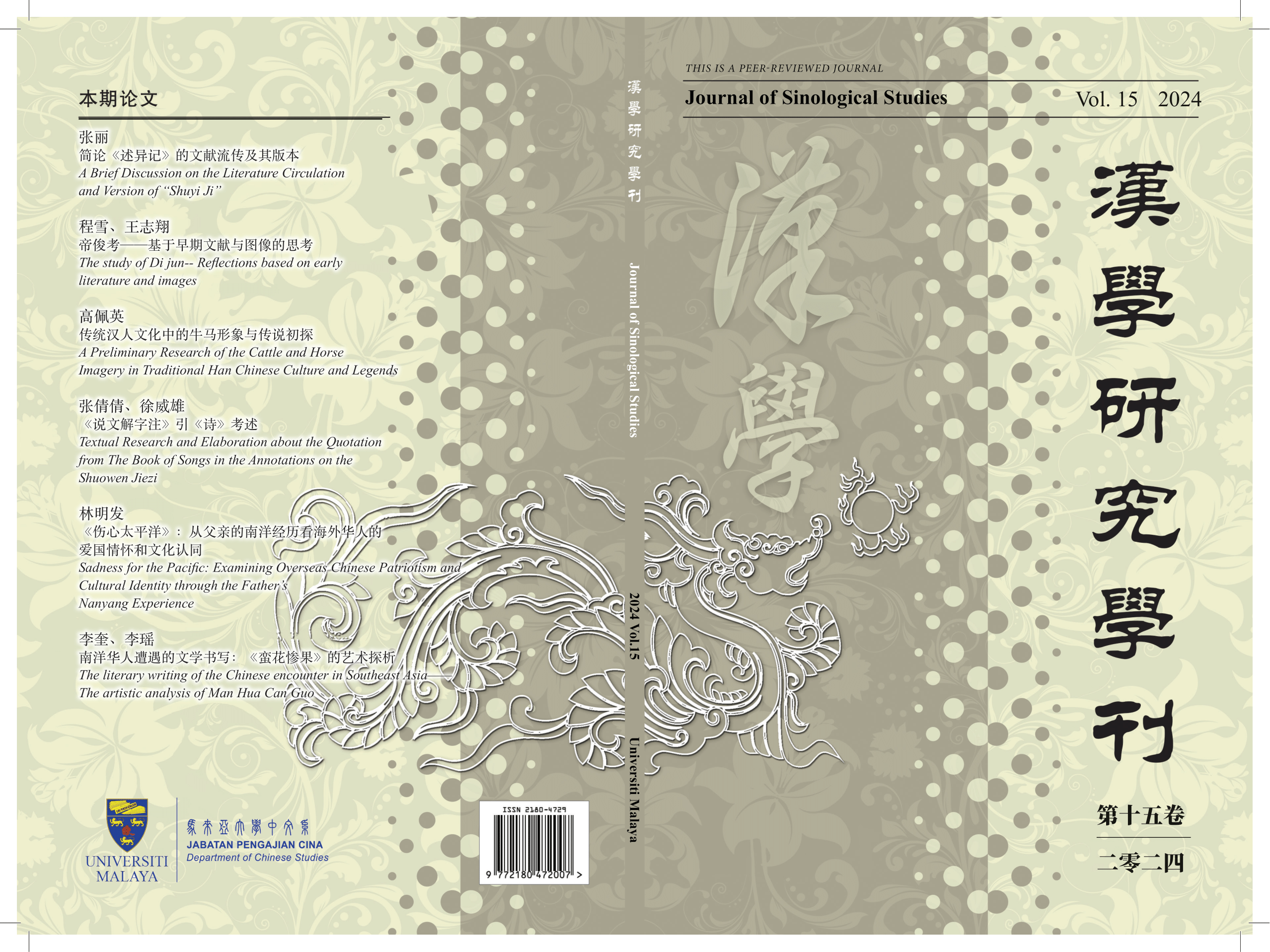《说文解字注》引《诗》考述
Textual Research and Elaboration about the Quotation from The Book of Songs in the Annotations on the Shuowen Jiezi
Abstract
段玉裁是杰出的经学家,也是著名的语言文字学家,在中国经学史、语言文字学史上都具有特别重要之地位。在他众多研究著作中,《说文解字注》是成书时间最晚、研究成果结晶的一部。《诗经》是段玉裁《说文解字注》中引用内容数量最多的古代典籍,《诗经》与《说文解字注》关系密切非常。在《说文解字注》中,段玉裁引用《诗经》内容,有时为了证明自己的观点,仅仅单个字的注释内容少则引用1 篇,多则5 篇、8篇或者更多数量的不同《诗经》篇目内容来辅证。我们发现段氏引用《诗经》内容主要是用来解释字的本义;有时校订字义的讹误,间或证明字的引申义;又或证明字的假借义。
Duan Yucai was an outstanding Confucian scholar and a renowned linguist, holding a particularly important place in the history of Confucian studies and linguistics in China. Among his numerous research works, Annotations on the Shuowen Jiezi was the latest and the most accurate, also was the most authoritative result of his research efforts. In the Annotations on the Shuowen Jiezi, Duan Yucai extensively quoted content from The Book of Songs, which is the ancient text with the most references in his annotations. The relationship between The Book of Songs and the Annotations on the Shuowen Jiezi is very close. In the Annotations on the Shuowen Jiezi, Duan Yucai extensively makes references content to The Book of Songs. At times, he uses content from one or more different poems within The Book of Songs to support his arguments. This ranges from citing just one poem to referencing five, eight, or even more poems to provide evidences for his points. This article finds that Duan's use of The Book of Songs content primarily serves the following purposes: explaining the original meaning of a character, correcting errors in character meanings, occasionally demonstrating the extended meanings of characters, or illustrating the borrowed meanings of characters.
Downloads


